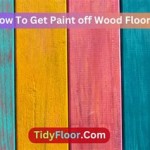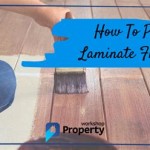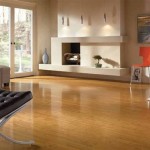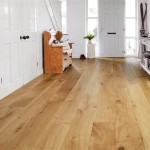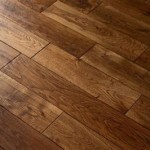What Is The Most Scratch Resistant Hardwood Flooring?
Hardwood flooring is a highly desirable feature in many homes, prized for its natural beauty, warmth, and durability. However, hardwood floors are not impervious to damage. Scratches, dents, and other imperfections can accumulate over time, particularly in high-traffic areas or households with pets and children. Consequently, the search for the most scratch-resistant hardwood flooring is a common concern among homeowners. Understanding the factors that contribute to scratch resistance is crucial for making an informed decision.
The resistance of hardwood flooring to scratches is determined by a combination of factors, including the species of wood, the type of finish applied, and the overall maintenance routine. No hardwood floor is entirely scratch-proof, but certain species and finishes offer significantly greater protection than others. This article will explore the key considerations in selecting a scratch-resistant hardwood flooring option.
Understanding the Janka Hardness Scale
The Janka hardness scale is a common method for rating the relative hardness of different wood species. This scale measures the force required to embed a steel ball with a diameter of 0.444 inches into the wood to half its diameter. A higher Janka rating indicates a harder, more dent-resistant wood. While Janka hardness is a useful indicator of dent resistance, it is not a sole determinant of scratch resistance. Scratch resistance also involves factors such as the wood's grain pattern and surface finish.
Several hardwood species are known for their high Janka ratings. Brazilian Walnut (Ipe) commonly tops the list, boasting a Janka rating of over 3600. This extremely dense wood is very resistant to both scratches and dents. Other durable options include Brazilian Cherry (Jatoba), which scores around 2350, and Hickory, averaging around 1820. These species demonstrate a significant advantage in resisting surface damage compared to softer woods.
For comparison, softer woods commonly used for flooring, such as American Cherry (around 950) and Black Walnut (around 1010), are more susceptible to scratches and dents. While these species offer a beautiful aesthetic, they require more careful maintenance to preserve their appearance. Pine, with a Janka rating often below 700, is among the softest flooring options and can show signs of wear relatively quickly.
It's important to note that the Janka hardness scale provides a standardized measure for comparing wood species, but the actual performance of a floor also depends on the specific cut of the wood (e.g., quarter-sawn, rift-sawn) and the quality of the installation.
The Impact of Finish on Scratch Resistance
While the wood species provides the foundation for scratch resistance, the type of finish applied to the flooring plays a crucial role in its overall durability. Today's finishes offer varying levels of protection against scratches, scuffs, and other forms of wear. The finish acts as a protective barrier, shielding the underlying wood from direct contact with abrasive materials.
Polyurethane finishes are a popular choice for hardwood floors due to their durability and water resistance. These finishes form a hard, protective layer on the surface of the wood. Water-based polyurethanes offer low volatile organic compound (VOC) emissions, making them an environmentally friendly option. Oil-based polyurethanes are known for their durability and ability to deepen the wood's natural color, but they typically have higher VOC levels. Polyurethane finishes are available in different sheens, such as matte, satin, semi-gloss, and gloss. Matte and satin finishes tend to conceal scratches more effectively than gloss finishes, as they do not reflect light as much. However, gloss finishes can be more durable in certain applications.
Aluminum oxide finishes are known for their exceptional durability and scratch resistance. Aluminum oxide is a very hard ceramic material that is infused into the finish during the manufacturing process. This results in a finish that is significantly more resistant to abrasion and scratching compared to traditional polyurethane finishes. Aluminum oxide finishes are commonly found on prefinished hardwood flooring.
Penetrating oil finishes, such as tung oil and linseed oil, are another option for hardwood floors. These finishes penetrate the wood pores, providing protection from within. While penetrating oil finishes offer a natural look and feel, they typically require more frequent maintenance than polyurethane or aluminum oxide finishes. They also tend to be less scratch-resistant compared to the harder surface finishes.
UV-cured acrylic finishes are becoming increasingly popular. Through a curing process using ultraviolet light, these finishes establish a robust and enduring shield on the wood surface. They are acclaimed for their resistance to scratching, abrasion, and chemicals, rendering them well-suited for high-traffic domains.
Ultimately, the choice of finish depends on the desired level of scratch resistance, the aesthetic preferences of the homeowner, and the maintenance requirements of the finish.
Maintenance and Prevention of Scratches
Even the most scratch-resistant hardwood flooring requires proper maintenance to preserve its appearance and longevity. Preventative measures and regular cleaning can significantly reduce the risk of scratches and other damage.
One of the most effective ways to minimize scratches is to use doormats at all entrances to trap dirt, sand, and other abrasive particles before they are tracked onto the floors. Area rugs can also provide protection in high-traffic areas, such as hallways and living rooms. These rugs serve as a barrier, absorbing the impact of foot traffic and reducing the amount of wear and tear on the hardwood flooring.
Furniture pads should be placed under the legs of all furniture to prevent scratches and dents when moving furniture across the floor. Avoid dragging heavy objects across the floor, as this can easily result in scratches. Lift and carry furniture whenever possible.
Regular cleaning is essential for maintaining the appearance of hardwood floors. Sweep or vacuum the floors regularly to remove dirt and debris that can scratch the surface. Use a vacuum cleaner with a soft brush attachment to avoid scratching the floor. When mopping, use a damp mop and a cleaning solution specifically designed for hardwood floors. Avoid using excessive water, as this can damage the wood. Never use abrasive cleaners, scouring pads, or steel wool on hardwood floors, as these can scratch the finish.
Pet owners can take steps to protect their hardwood floors from scratches caused by their pets' claws. Trim pets' nails regularly to minimize the risk of scratching. Provide pets with designated scratching posts or mats to discourage them from scratching the floors.
In the event that scratches do occur, there are several options for repairing them. Minor scratches can often be concealed with a scratch concealment product, such as a touch-up marker or a wax stick. Deeper scratches may require professional refinishing. Refinishing involves sanding down the existing finish and applying a new coat of finish. This can restore the floor to its original appearance and provide a fresh layer of protection.
Furthermore, consider the impact of sunlight on the flooring. Prolonged exposure to direct sunlight can cause fading or discoloration of the wood. Use curtains or blinds to protect the floors from excessive sunlight.
By implementing these preventative measures and maintaining a regular cleaning routine, homeowners can extend the life of their hardwood floors and minimize the appearance of scratches.
Therefore, selecting scratch-resistant hardwood flooring involves considering wood species, finish type, and proper maintenance. A hardwood floor's durability and resilience against wear and tear are significantly influenced by the interaction of these variables. Making an informed choice requires careful evaluation of these aspects to balance both aesthetic preferences and practical needs.

Best Engineered Hardwood Floor For Scratch Resistance Lifecore Flooring S

Hardwood Flooring That Will Not Scratch Garrison Collection

What Is The Most Scratch Resistant Engineered Wood Flooring

What Are The Most Scratch Resistant Hardwood Flooring Options

Are There Any Scratch Resistant Hardwood Flooring Options Woodfloor Masters Inc

Scratch Resistant Hardwood Flooring At Com

4 Of The Most Durable Flooring Options For Your Home Twenty Oak

Scratch Resistant Hardwood Flooring At Com

Scratch Resistant Flooring Which Material Is The Best Lamont Bros

Best Engineered Hardwood Floor For Scratch Resistance Lifecore Flooring S
See Also
